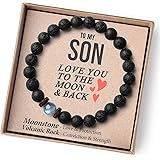
There are a good number of year-end telescope deals available, if you’re trying to pick up a cheap model. If you’re looking to gift a new telescope to a budding astronomer, you’re in luck, as plenty of the best telescopes for beginners and best telescopes for kids are currently discounted.
Below, you’ll find a mix of refractor, reflector and catadioptric telescopes that are reduced right now. Unfortunately, not a lot of high-spec telescopes are discounted at the moment, but we’re keeping an eye on sales and will update this page if that changes.
Need a bit more guidance? Have a look through our ultimate round-up of the best telescopes, which contains helpful advice on the different types of optics used in telescopes and what to look for when you’re buying. Or, for more cheap options, scroll through our list of the best budget telescopes for under $500.
Related: Celestron telescope deals | Sky-Watcher telescope deals | Meade telescope deals | Orion telescope deals
Today’s best US telescope deals
- More top deals: Telescopes on Amazon
- See the latest discounts: Telescope at Walmart
- Browse the sales: Telescopes at Best Buy
Today’s best UK deals
Buying advice: Finding the right one for you
When you’re buying a telescope, the first thing you need to consider is how you’re going to use it. If you’re planning on checking out large targets like the Milky Way and the Orion Nebula, you’ll want to pick up something with a short focal length of around 20 inches (500 mm).
If you’re trying to get closer views of the planets and stars, you should opt for a longer focal length, ideally around 80inches (2000mm.) This focal length is, roughly speaking, decided by the length of the telescope, so a shorter telescope will give you a wider field of view while a longer one will give you a smaller one. On top of this, you’ll also have to decide what type of telescope you want: a refractor, reflector, or a catadioptric model.
Refractor telescopes are great for beginners, as they’re easy to assemble and to operate. They’re also usually relatively cheap to manufacture, which is reflected in their final price. They are best suited to viewing things like planets and moons, thanks to their typically long focal length, but unfortunately they do have a tendency to suffer from chromatic aberration.
Reflector telescopes are well-loved by amateur astronomers and better suited to low-magnification targets, such as galaxies and nebulas. These telescopes can be divided into two different types: Newtonians and Dobsonians. Newtonian reflectors are quite versatile and well-suited to astrophotography, but they require quite a lot of upkeep. Dobsonians might be more tempting to amateurs, as they tend to be simpler to maintain.
Finally, there are the slightly pricier catadioptric telescopes, which were created to tackle some of the problems found in the standard refractor and reflector design. Here, we’ve divided them into two categories: the Maksutov-Cassegrain and the Schmidt-Cassegrain. The former model is great for correcting issues such as the “coma” distortion effect and the aforementioned chromatic aberration. The latter is a very versatile model, also boasting reduced chromatic aberration, which typically comes equipped with a GoTo system. This software allows you to automatically point your scope at particular astronomical objects, which is great for beginners.
Newtonian telescope deals

Newtonian telescopes are popular with amateur astronomers, because they allow users to focus on a really wide range of night sky objects. They’re complicated bits of kits that require a fair bit of maintenance, so if you are going to buy one of these models then make sure you pick one that has mirrors with a protective coating, as it will last longer.
Below, you’ll find deals on a couple of our favorite models, depending on availability in your local area: the Meade StarNavigator NG 114 and the Celestron StarSense Explorer DX 130AZ. Both models are great for beginners and – crucially – very reasonably priced.
Dobsonian telescope deals

Dobsonian telescopes are another kind of reflector telescope. They’re a lot easier to maintain and operate than their Newtonian counterparts, but they’re still great for spotting a wide range of astronomical objects.
In the deals box below, you’ll find the latest prices for the Orion SkyScanner 100 Reflector, the Sky-Watcher Skyliner 200P and the Sky-Watcher Flextube 300 SynScan Dobsonian. The former two models are reasonably priced and ideal for beginners, while the latter model is a slightly pricier option, with a huge aperture that allows you to see deeper into space.
Refractor telescope deals

Refractor telescopes are intuitive to use and easy to set up, so they are popular with novice astronomers. They are also relatively cheap to manufacture, which means that you can get a refractor telescope with a decent size aperture for a very good price. The only drawback here is that the telescopes can suffer from chromatic aberration, where colors and images can seem a bit fuzzy.
Here, we’ve rounded up some of our favorite refractors: the Orion Observer II 70 Refractor, the Meade Instruments Infinity 102 AZ, the Celestron Inspire 100AZ and the Celestron Omni XLT 120. The first three are brilliant for beginners who want to get clear views of planets, while the Celestron Omni XLT 120 is perfect for intermediate astronomers who value high quality optics and want to spend a little more.
Maksutov-Cassegrain telescope deals

Put simply, Maksutov-Cassegrain telescopes correct problems you might find in a reflector telescope, such as the ‘coma’ effect, where images appear blurred. They have sealed optics, so you don’t have to worry about maintenance, and they also tend to come with a go-to system, making it easy to navigate the stars. Some of the best beginner telescopes can be found in this category, although they can also be a little bit pricey.
Just below, you’ll find deals on some of our favorite models when they’re available. These are: the Meade ETX90 Observer, the Sky-Watcher Skymax 150 PRO and the Celestron Astro Fi 102. The Celestron Astro Fi 102 is actually fairly well-priced — and a great option for beginners — while the other two are a little more expensive, but still easy to set up and intuitive to use.
Schmidt-Cassegrain telescope deals

The Schmidt-Cassegrain telescopes we’ve included below are high-end models, with high-quality optics to match. They all boast decent apertures and can be used to get excellent views of planets and moons. Be warned, they’re not always great for astrophotography because of their curved focal plane, but for star gazing purposes they’re excellent.
When they’re available, you’ll find deals below for: the Celestron NexStar Evolution 9.25 (which boasts one of the best optical systems we’ve ever tried), the Celestron NexStar 6SE, the Celestron NexStar 8SE, and the Celestron Advanced VX 9.25 EdgeHD, which is a rare example of a Schmidt-Cassegrain telescope that can be used by astrophotographers.
Kids’ telescope deals

When you’re choosing the best telescope for your kids, you want something robust, compact and — ideally — less than $100. Here, we’ve rounded up refractor and reflector telescopes that fit the bill. These instruments will give youngsters clear views of the moon, along with some of our closest planets and stars.
These telescopes offer the perfect introduction to astronomy, but for youngsters who prefer looking through two eyes, you might want to pick up some of the best binoculars for kids instead.
Below, you’ll see deals on our top picks for youngsters: the Celestron FirstScope 76 Tabletop, the Meade Instruments StarPro 102, the Orion SpaceProbe II 76, the Celestron Astro Fi 90, the Orion StarBlast 4.5 Astro Reflector and the Celestron AstroMaster 70AZ.
Join our Space Forums to keep talking space on the latest missions, night sky and more! And if you have a news tip, correction or comment, let us know at: community@space.com.

Ruth has worked across both print and online media for five years, contributing to national newspaper titles and popular tech sites. She has held a number of journalist roles alongside more senior editorial positions, and is currently acting as a commissioning editor for Space.com.
Note: This article have been indexed to our site. We do not claim legitimacy, ownership or copyright of any of the content above. To see the article at original source Click Here







